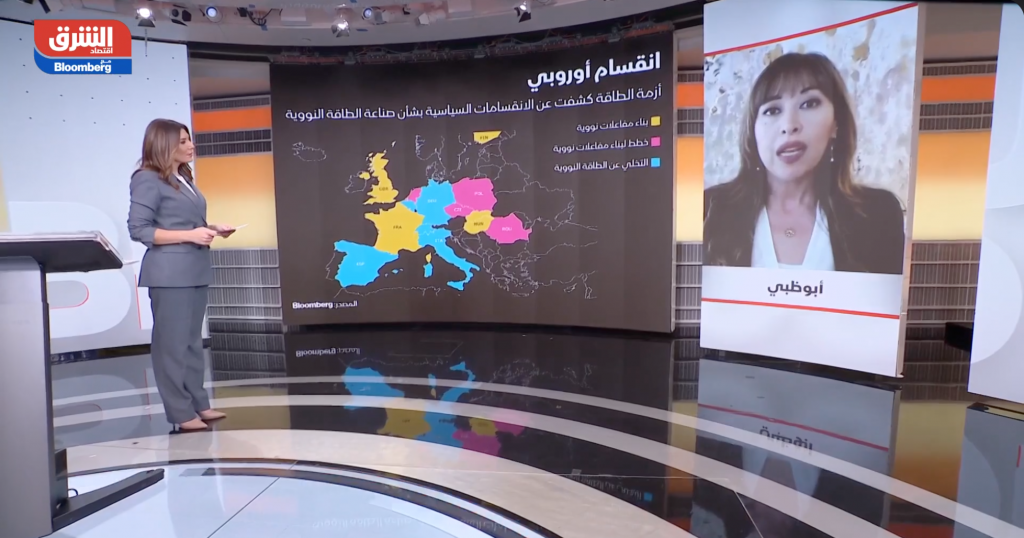In this interview with Maya Hojeij from Asharq Business Bloomberg, Dr Carole Nakhle, CEO of Crystol Energy, discusses the challenges of adopting nuclear energy technology in Europe.
Nuclear energy continues to be a sensitive subject. The Chernobyl disaster damaged the safety perception of nuclear energy, which saw its share of global power generation peaking in the mid-1990s. And only when things started to look rosier, Fukushima disaster happened. People do not easily forget the consequences of such accidents, which can last many years. Furthermore, the capital investment is substantial and today, more than ever, will be more challenging given the economic scars of Covid-19.
Within the EU, we see a divergence in reliance on nuclear energy. Italy, for instance, does not have nuclear energy, while France gets nearly 70% of its electricity from nuclear power. The current energy crisis in Europe won’t be a decisive factor behind a change of EU energy policy overnight. While some countries expressed interest in the nuclear energy technology, governments respond to the electorate, as the German experience tells us.
The technology of nuclear energy is confined between a small number of countries, such as the US, China, Japan, Russia and France, which benefit substantially from exporting the technology.
Security of supply continues to be best achieved by diversity and diversity alone of energy resources and supplies.
Watch the discussion (in Arabic)
Related analysis
“Times letters: High energy prices and the switch to net zero“, Lord Howell, Dec 2021
“The Future of Nuclear Energy in the Middle East and North Africa“, Dr Carole Nakhle, April 2017
Related Comments
“UAE switches on Arab world’s first nuclear power plant“, Christof Rühl, May 2020









